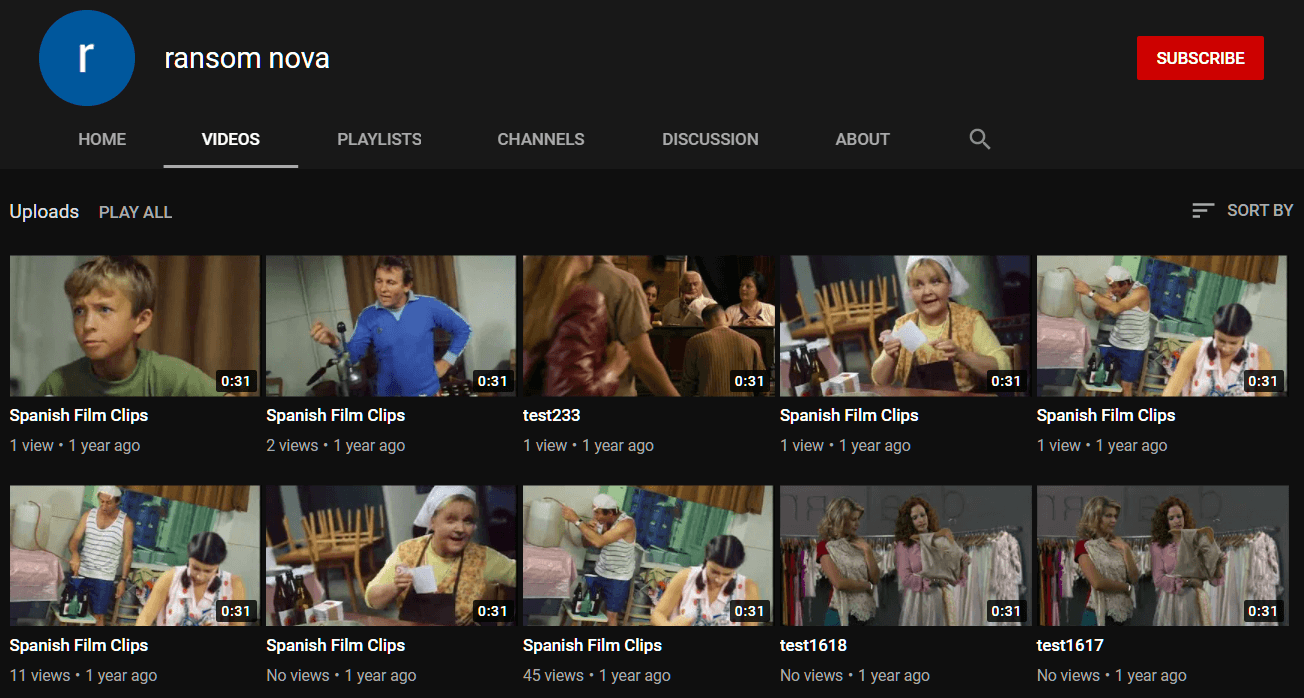-
chevron_right
Valorant & Destiny 2 Cheat Maker Sued For Copyright Violations
Andy Maxwell · news.movim.eu / TorrentFreak · Tuesday, 12 January, 2021 - 10:44 · 5 minutes
 While the vast majority of videogames players are happy to enjoy games within the parameters set by their developers, there are millions who prefer to cheat their way to victory.
While the vast majority of videogames players are happy to enjoy games within the parameters set by their developers, there are millions who prefer to cheat their way to victory.
As a result, an industry has appeared ready to service people looking to gain an unfair advantage, offering cheating products often at a premium price. This disruption is frowned upon by developers and regular players alike, who argue that when the gaming experience becomes unfair, the fun associated with playing collapses.
In an effort to reduce the number of players cheating online, various videogame companies have filed lawsuits in the United States. Yesterday another one was added to the growing list when Riot Games and Bungie filed a copyright infringement lawsuit against GatorCheats for offering tools enabling cheating in Valorant, Destiny 2, and other titles.
“Malicious” Software Products “Destroy” plaintiffs’ Games
Filed in a California district court, the lawsuit targets Albuquerque, New Mexico resident Cameron Santos (the alleged operator of GatorCheats), plus an additional 10 ‘Doe’ defendants, some of whom (“Hal,” “Matt” and “Megan”) are alleged to provide customer support to cheat users.
“By this lawsuit, Plaintiffs seek to put a stop to the unlawful, for-profit sale and distribution of malicious software products designed to enable members of the public to gain unfair competitive advantages (i.e., to cheat) in the Games, and, thereby, to impair and destroy Plaintiffs’ Games, Plaintiffs’ overall business, and the experience of Plaintiffs’ player community,” the complaint reads.
According to Riot and Bungie, Santos owns several online ventures engaged in the development and sale of “malicious cheats” targeting the companies’ games. “Honeyhacks” and “Voidcheaters” get a mention but GatorCheats is the largest, selling a cheat known as “Gatorant” and several tools for Destiny 2.
“The Cheating Software enables players to manipulate Valorant and Destiny 2 to their personal advantage, such as by automatically aiming weapons, revealing the locations of opponents, and allowing the player to see a vast array of information that otherwise would be obscured,” the companies note.
Cheat Makers Undermine Business Models
This undermining of the gaming experience for ordinary players comes at an enormous reputational and financial cost according to the complaint. As gamers leave their respective arenas in the face of cheating opponents, Riot and Bungie are reportedly losing goodwill along with millions of dollars in revenue.
The key issue is that the popularity of both Valorant and Destiny 2 lies not only in their gaming experiences but also in the business models selected by the plaintiffs. Since both games are available to play for free, the companies rely on gamers staying online for as long as possible while buying virtual goods such as characters, weapons, skins and clothing. When the experience is diminished by cheaters, the whole plan begins to come apart at the seams.
“If players perceive that others are cheating or have an unfair advantage, they will grow frustrated with the Games and stop playing. That, in turn, could disrupt and/or destroy the Games’ player communities and severely harm Plaintiffs’ ability to generate revenue and to maintain, improve, and expand the Games,” the complaint reads.
Bungie Issued Cease-and-Desist Notice in 2020
In an effort to protect their game, in November 2020 legal counsel for Bungie served GatorCheats with a cease-and-desist notice. GatorCheats subsequently informed users that the Destiny 2 cheats would be removed from sale but Santos reportedly assured those who had purchased a lifetime license they would continue to receive customer support.
However, the plaintiffs aren’t convinced that GatorCheats will discontinue the Destiny 2 cheats, alleging that the cheat maker will probably sell the software to users in a more discreet manner, including via a private section of the GatorCheats site.
The uncertainty surrounding compliance with the cease-and-desist notice appears to have triggered the lawsuit, which majors on breaches of the DMCA’s anti-circumvention provisions plus violations of contract and unfair competition laws.
Trafficking in Circumvention Devices
The plaintiffs state that their games are protected by anti-cheat technologies designed to detect and thwart cheating tools. These technologies must be installed on users’ machines if they want to play the games. This means that if a cheat maker is to have a successful product, it must either conceal its existence from the developers’ anti-cheat technologies or disable them altogether. This is illegal under the DMCA, the plaintiffs claim.
“The Cheating Software is comprised of or contains technologies, products, services, devices, components, or parts thereof that primarily are designed or produced for the purpose of circumventing technological measures that effectively control access to the Games,” the complaint reads, noting that the cheats have no commercially significant purpose other than to circumvent technological measures.
“As a result of the foregoing, Defendants are offering to the public, providing, importing, or otherwise trafficking in technology that violates 17 U.S.C. § 1201(a)(2) .”
As a result of these alleged infringements, the plaintiffs are demanding either the profits attributable to the sales of the cheats or the maximum statutory damages of $2,500 per violation of the DMCA. In respect of the former, the complaint estimates sales in the “tens or hundreds of thousands of dollars” for both sets of cheats. In the case of the latter, both cheats are said to have been downloaded “thousands of times” which easily supports a claim in the millions of dollars.
Interference With Contractual Relations, Unfair Competition
In addition to the claims under the DMCA, Riot and Bungie allege that though the provision of the cheats, GatorCheats intentionally encouraged its customers to breach the licensing contracts they had agreed with the companies when they installed the games. As a result, the cheat maker is guilty of “oppression, fraud, or malice” allowing the plaintiffs to recover exemplary and punitive damages.
In their final claim, Riot and Bungie state that GatorCheats engaged in unfair competition under California law, an act that again requires the cheat maker to pay compensation for damages caused to their businesses.
In the interim, the plaintiffs request injunctions to prevent GatorCheats from continuing to violate their rights, demanding that the cheat maker shuts down its software and removes it from the Internet. The gaming companies are also seeking access to financial records showing GatorCheats’ sales and how much money was made. That amount could be substantial.
According to the videogame companies, the Valorant cheat costs users $90 per month, $350 for three months, and $500 for lifetime access. The Destiny 2 cheats are slightly less pricey at $100 per month or $200 for a lifetime license.
The complaint can be found here (pdf)
From: TF , for the latest news on copyright battles, piracy and more.






 Hacking group Team-Xecuter has long been a thorn in the side of major gaming companies.
Hacking group Team-Xecuter has long been a thorn in the side of major gaming companies.

 Operating a mixtape site is not without risk. By definition, mixes include multiple sound recordings that are often protected by copyright.
Operating a mixtape site is not without risk. By definition, mixes include multiple sound recordings that are often protected by copyright.